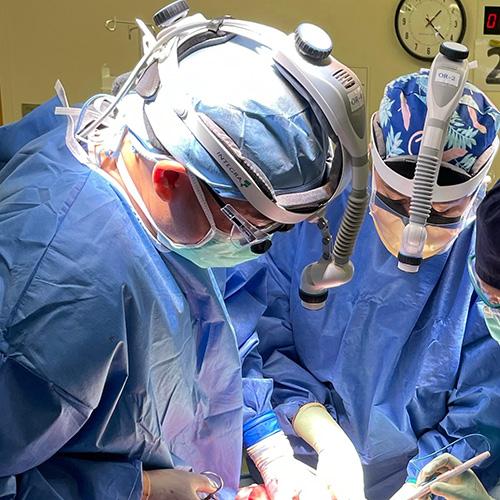Retroperitoneal Sarcoma Treatments

How Is Retroperitoneal Sarcoma Treated?
Surgery is the main form of treatment before retroperitoneal sarcoma has spread to other organs. The goal of surgery is to remove the tumor completely as one piece (complete resection). The challenge is that the tumors are often very large and may touch upon or involve major organs and critical structures, such as blood vessels. In about half of patients with retroperitoneal sarcoma, the surgery consists of removing one kidney and part of the colon on the tumor side; however, each case may differ. For each retroperitoneal sarcoma patient, our surgeons individualize the surgical plan to achieve a safe but complete resection. Very few surgeons have expertise in these complex operations that can sometimes take many hours and involve multiple teams.
In some cases, radiation or systemic therapy may be indicated before or after surgery. Drawing from our resources as National Cancer Institute-designated comprehensive cancer center and our multidisciplinary team of sarcoma specialists, City of Hope can offer better outcomes and improved survival compared to other health care providers.
What Are the Outcomes for Patients with Retroperitoneal Sarcoma?
After surgery, patients are closely monitored to look for any evidence for return of the tumor. This is done with CT scans, initially every 4-6 months, for several years. The possibility of the tumor returning in the same location (recurrence) depends on the type of retroperitoneal sarcoma and can be high in liposarcoma. Many factors are considered to determine the risk of recurrence, including how the surgery was performed and details of the tumor itself, including how aggressive the cells look under the microscope (grade).
Tumor recurrence in retroperitoneal liposarcoma is often still treatable. Depending on the case, a small tumor detected on CT may initially be watched closely with a repeat scan several months later to better understand the tumor behavior. Recurrence can also develop as two or more tumors (multifocal). Ultimately, surgery is still a significant part of treatment for recurrent disease, and patients may have multiple surgeries for this disease over several years. The benefit of radiation or systemic therapy in recurrent retroperitoneal liposarcoma is still being studied.
What Can I Do as a Patient with Retroperitoneal Sarcoma?
It is essential to pursue medical care, even if there are minimal or no symptoms.
Before starting any treatment, a patient should proactively seek a sarcoma specialist, given the rarity and complexity of retroperitoneal sarcoma. If being considered for surgery, a patient should schedule a consultation with a surgical oncologist who specializes in sarcoma.